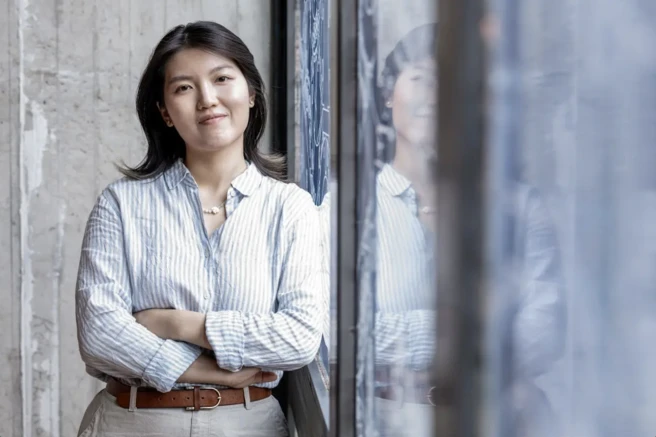Across the globe, researchers are striving to develop sustainable methods for cleaning contaminated wastewater. At the TUM School of Natural Sciences, doctoral researcher Yixiao Zhang is creating nanoparticles that act as highly efficient catalysts, transforming waste products into new and valuable resources like the fertilizer urea.
How can harmful substances be converted into useful materials — while using as little energy as possible? This question drives electrochemist Yixiao Zhang. Originally from China, she came to Germany in 2013 to complete her International Baccalaureate at the International School of Düsseldorf. She went on to earn a Bachelor’s degree in Chemistry in the Netherlands and a Master’s in Chemical Biotechnology at the TUM Campus Straubing. Since April 2024, Yixiao has been pursuing her PhD in the research group of Prof. Dr. Aliaksandr Bandarenka, Professor of Physics of Energy Conversion and Storage.
From energy-intensive to energy-efficient
In her doctoral research, Yixiao investigates new approaches to make chemical processes more energy-efficient. The energy conversion processes she studies rely on catalysts – substances that accelerate chemical reactions without being consumed in the process. Her goal: to remove pollutants such as nitrates and bicarbonates from wastewater which poses a serious threat to ecosystems and drinking water. Simultaneously she wants to convert them into valuable compounds like urea, a key component in fertilizers. Compared to other nitrogen fertilizers, urea is the most efficient solid one available and is used worldwide for food production. So it is needed in large amounts.
Conventional urea production by industrial Bosch-Meiser process is both energy-intensive and carbon-emitting. A promising alternative is electrochemical synthesis, which uses electricity instead of heat and high pressure to drive chemical reactions. This method can significantly reduce both energy consumption and CO2 emissions. However, controlling the process to produce mainly urea - rather than unwanted by-products - remains a major challenge.
Designing smarter catalysts for higher selectivity
Catalysts can help to shift these reactions towards urea production. Yixiao designs such catalysts that are only a few nanometers in size. “The goal of my research is to establish design principles for catalysts that not only increase selectivity toward urea but also enable sustainable nitrogen utilization via an upcycling process,” she explains. She focuses on copper-based bimetallic catalysts, fine-tuning their structure to stabilize reaction intermediates that promote urea formation and minimize energy losses.
In the future, these highly efficient catalysts could help remove nitrates from wastewater while producing valuable resources such as urea - saving energy, reducing emissions, and conserving natural resources at the same time.
Making science playful and accessible
Beyond her lab work, Yixiao is passionate about science communication and enjoys sharing her enthusiasm for chemistry with the public. Together with colleagues from the Cluster of Excellence e-conversion and an interdisciplinary team at TUM, she co-developed the interactive escape-room game “Escape from Carbonia”. The game offers a playful way to explore renewable energy research and won the 2025 University Competition organized by “Wissenschaft im Dialog”. At the Deutsches Museum and other public venues such as the Kunstareal München, Yixiao and her team are now bringing science closer to people — and showing that research can be exciting, engaging, and fun.
Further information and links
- Short portrait of Prof Aliaksandr Bandarenka
- Research group Physics of Energy Conversion and Storage
- EU-wide research project ICONIC, researching the integrated conversion of nitrate and carbonate streams
- Energy research at TUM
- TUM science glossary: energy
- Website of the Cluster of Excellence "e-conversion"
- Escape room game “Escape from Carbonia”
Technical University of Munich
Corporate Communications Center
- Eva Fritsch, Dr. Vera Spaett
- eva.fritsch@tum.de
- presse@tum.de
- Teamwebsite
Original article: https://www.tum.de/en/news-and-events/all-news/press-releases/details/new-resources-from-waste-products
